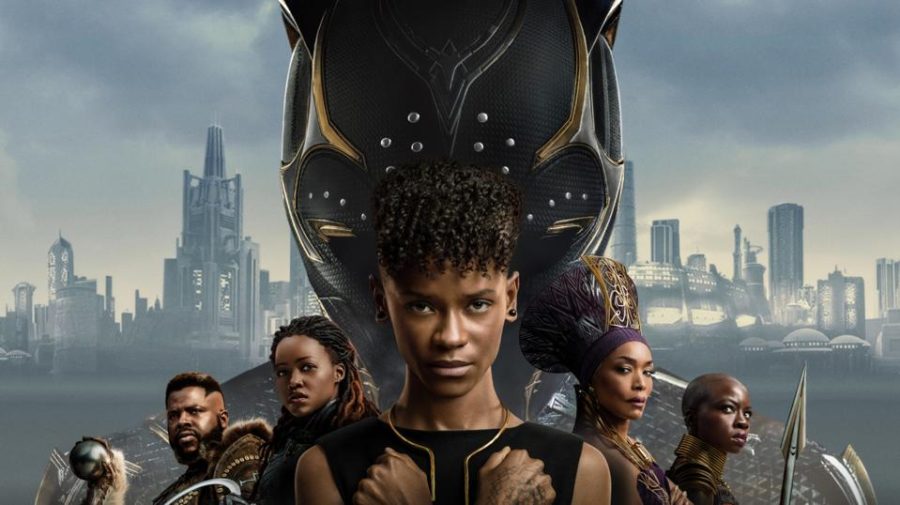‘Black Panther: Wakanda Forever’ honors legacy of Chadwick Boseman
Wakanda Forever’s strong female cast help propel the emotional core of its story.
December 8, 2022
Chadwick Boseman’s untimely passing in 2020 left a hole in the hearts of many, especially for fans of his role as the Black Panther in the Marvel Cinematic Universe. When news broke that development of the sequel would still continue in spite of Boseman’s passing, discourse ensued over what the proper course of action for the film would be. Fans argued whether or not they should recast Boseman while others called for the film to be canceled outright out of respect for Boseman. Despite the audiences’ concerns, “Black Panther: Wakanda Forever” not only manages to honor the legacy that Boseman left behind but uses the reality of his passing to fuel the themes of the story that pushes forward the next installment of Wakanda’s story.
Right from its first scene, “Wakanda Forever” makes Boseman’s death a central focus of the film by having the characters react to King T’Challa’s passing. T’Challa’s sister Shuri (Letitia Wright) is put at the forefront of the story alongside her mother Ramonda (Angela Bassett) as they now struggle with the loss of both their king and their family. What makes “Wakanda Forever” so uniquely compelling is the way the circumstances surrounding Boseman’s death inform both the themes of the film and the cast’s performances. The film uses its story to explore heavy themes of loss, mourning and regret but the emotions that the actors portray on screen are more than just reactions that the script calls for as it’s not just the characters that are grieving for the loss of T’Challa but the actors themselves for Boseman. Disney has notoriously mistreated deceased actors in the past by artificially recreating CGI versions of themselves such as with Carrie Fisher and Peter Cushing in recent Star Wars films and to see them not use this with Boseman and actually honor him properly further helps cement the story’s themes of dealing with loss.
The story follows Ramonda and Shuri as they struggle to lead a nation without someone to take up the mantle of the Black Panther as outside nations pressure them into sharing their technology with the rest of the world. Wakanda is soon threatened by a secret civilization of underwater humans led by Namor (Tenoch Huerta) who forces them into an ultimatum where they must exchange the life of a lead scientist whose developments put Namor and his people at risk of being discovered or go to war with Wakanda. Huerta’s performance as Namor not only effectively communicates the intimidating nature of the character but also the sympathetic side of him as well. Shuri spends a significant portion of the plot learning to understand Namor and his people and while the film’s runtime is lengthened considerably by this, it helps develop Shuri into a position where she is forced to make a decision regarding the fates of both nations.
With a hurdle as big as losing the lead actor of a film, trying to continue with development of a sequel without him should theoretically have resulted in disaster. However, “Black Panther: Wakanda Forever” is as good as it is because of how it directly ties its story with events in reality and in doing so honors Chadwick Boseman’s legacy. “Wakanda Forever” is far from just another Marvel movie because of this respect it carries and despite Phase 4 of the MCU being less than stellar as a whole, this film serves as an excellent ending point for this era of Marvel films.




